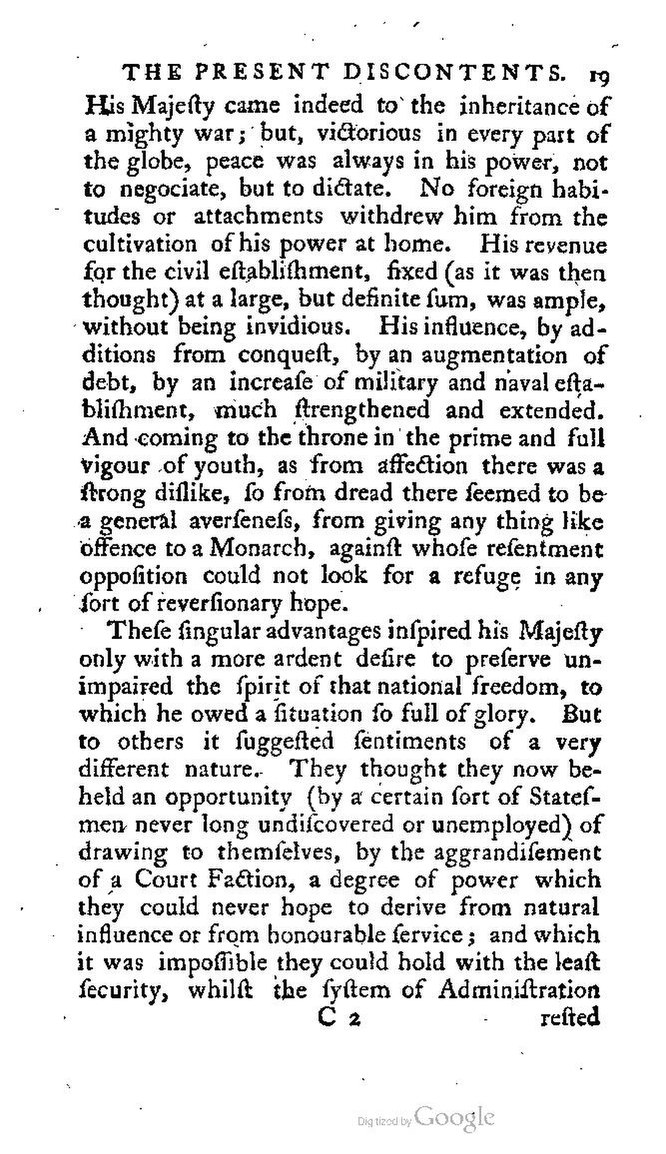His Majesty came indeed to the inheritance of a mighty war; but, victorious in every part of the globe, peace was always in his power, not to negociate, but to dictate. No foreign habitudes or attachments withdrew him from the cultivation of his power at home. His revenue for the civil establishment, fixed (as it was then thought) at a large, but definite sum, was ample, without being invidious. His influence, by additions from conquest, by an augmentation of debt, by an increase of military and naval establishment, much strengthened and extended. And coming to the throne in the prime and full vigour of youth, as from affection there was a strong dislike, so from dread there seemed to be a general averseness, from giving any thing like offence to a Monarch, against whose resentment opposition could not look for a refuge in any sort of reversionary hope.
These singular advantages inspired his Majesty only with a more ardent desire to preserve unimpaired the spirit of that national freedom, to which he owed a situation so full of glory. But to others it suggested sentiments of a very different nature. They thought they now be held an opportunity (by a certain sort of Statesmen never long undiscovered or unemployed) of drawing to themselves, by the aggrandisement of a Court Faction, a degree of power which they could never hope to derive from natural influence or from honourable service; and which it was impossible they could hold with the least security, whilst the system of Administration
